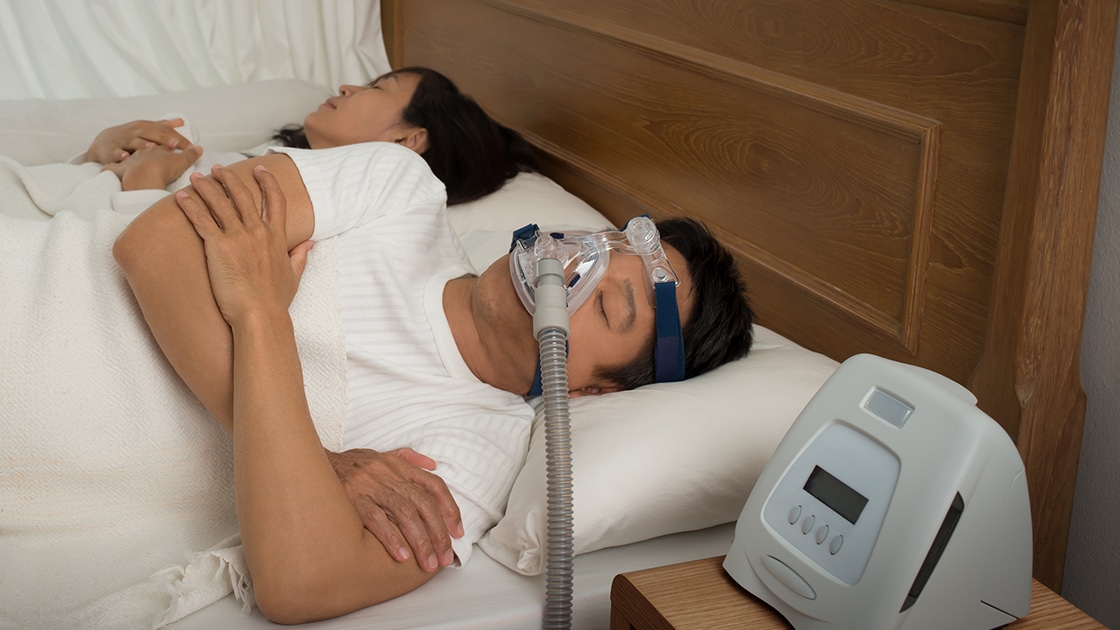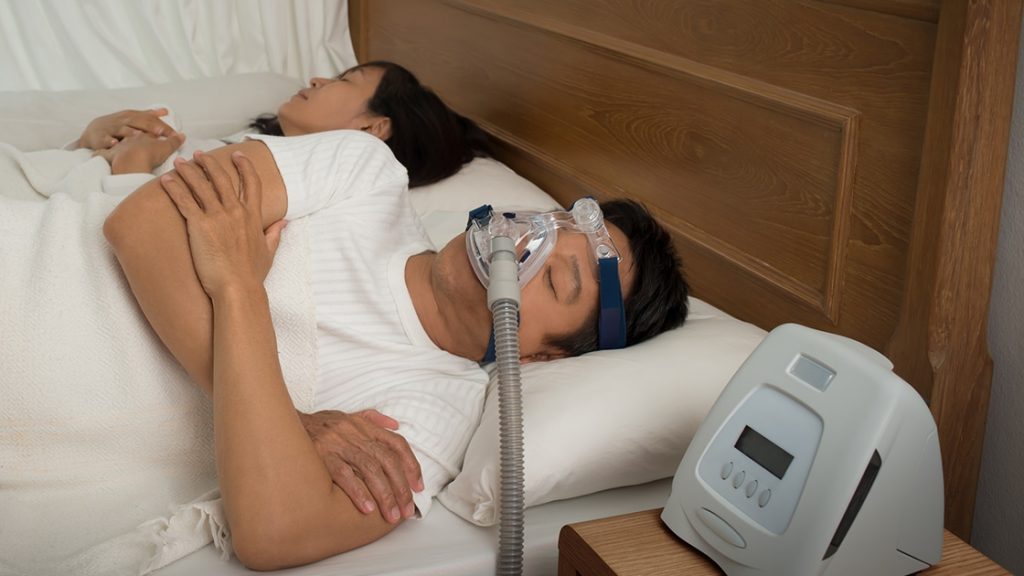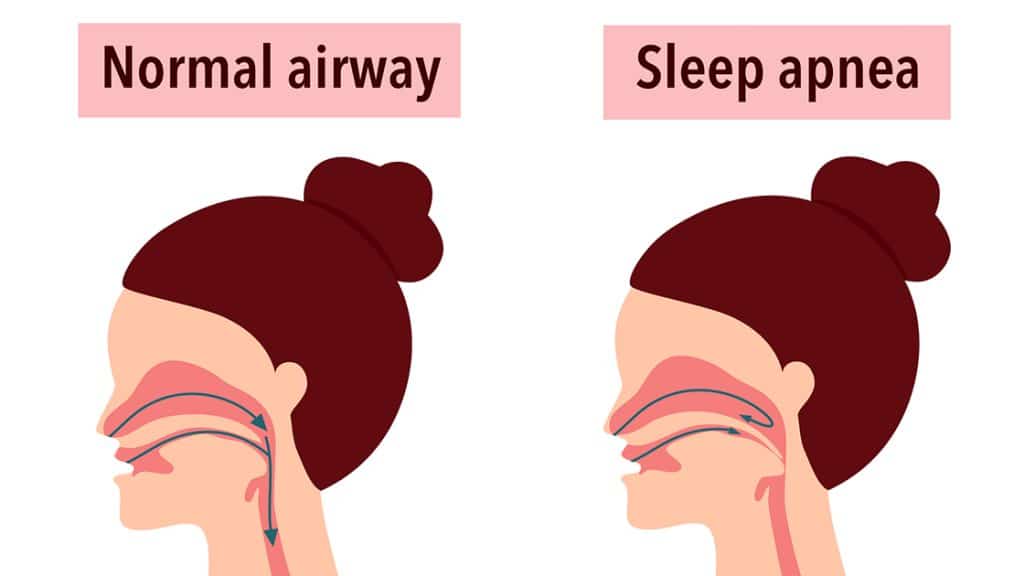
Your First Steps to Better Sleep with Sleep Apnea Treatment
Sleep apnea affects millions of Americans, yet many people struggle for years without knowing they have this serious condition. If you wake up exhausted despite getting a full night’s sleep, snore loudly, or experience breathing interruptions during sleep, you might be dealing with sleep apnea.
The good news? Effective sleep apnea treatment options are available, and taking the first step toward diagnosis and care can dramatically improve your quality of life. This guide will walk you through everything you need to know about sleep apnea, from recognizing symptoms to finding the right treatment approach for your specific needs.
Understanding Sleep Apnea
What is Sleep Apnea?
Sleep apnea is a serious sleep disorder where breathing repeatedly stops and starts throughout the night. These breathing interruptions, called apneas, can last anywhere from a few seconds to more than a minute and may occur dozens or even hundreds of times per night.
When your breathing stops, your brain briefly wakes you up to restart breathing, though you typically won’t remember these awakenings. This constant cycle prevents you from reaching the deep, restorative stages of sleep your body needs to function properly.

Types of Sleep Apnea
Sleep apnea comes in three main forms, each with different underlying causes:
- Obstructive Sleep Apnea (OSA) is the most common type, occurring when throat muscles relax and block the airway during sleep. This blockage can be partial or complete, leading to reduced oxygen levels in the blood.
- Central Sleep Apnea happens when your brain fails to send proper signals to the muscles that control breathing. Unlike OSA, this type isn’t caused by a physical blockage but rather a communication breakdown in your nervous system.
- Complex Sleep Apnea Syndrome combines elements of both obstructive and central sleep apnea, making it the most challenging form to treat effectively.
Common Symptoms of Sleep Apnea
Warning Signs to Watch For
Recognizing sleep apnea symptoms early can prevent serious health complications down the road. The most obvious signs include loud, chronic snoring and gasping or choking sounds during sleep. However, many symptoms manifest during waking hours.
Excessive daytime fatigue is one of the most common complaints among people with untreated sleep apnea. You might find yourself falling asleep during meetings, while watching TV, or even while driving. Morning headaches, difficulty concentrating, and mood changes like irritability or depression are also frequent indicators.
Other warning signs include waking up with a dry mouth or sore throat, frequent nighttime urination, and difficulty staying asleep. Some people experience memory problems or have trouble focusing at work or school.
How Sleep Apnea Affects Your Overall Health
Left untreated, sleep apnea can lead to serious health complications. The repeated drops in blood oxygen levels strain your cardiovascular system, increasing your risk of high blood pressure, heart disease, and stroke.
Sleep apnea also affects your metabolism, making it harder to maintain a healthy weight and increasing your risk of developing type 2 diabetes. The chronic sleep disruption weakens your immune system and can contribute to mental health issues like anxiety and depression.
The Importance of Early Diagnosis
Why Ignoring Sleep Apnea Symptoms Can Be Dangerous
Many people dismiss sleep apnea symptoms as normal signs of aging or stress. However, delaying sleep apnea treatments can have serious consequences for your health and safety. The daytime fatigue associated with sleep apnea significantly increases your risk of car accidents and workplace injuries.
From a health perspective, untreated sleep apnea puts enormous strain on your heart and other vital organs. The repeated oxygen drops during sleep force your heart to work harder, potentially leading to irregular heart rhythms, heart attacks, or heart failure over time.
The Role of Sleep Studies in Accurate Diagnosis
A proper sleep study is essential for accurately diagnosing sleep apnea and determining its severity. During a sleep study, medical professionals monitor your breathing patterns, heart rate, brain activity, and blood oxygen levels throughout the night.
Home sleep tests are available for some patients, but in-lab studies provide the most comprehensive data. These studies help doctors determine not only whether you have sleep apnea but also which type and how severe it is, allowing them to recommend the most appropriate treatment approach.
Exploring Treatment Options
CPAP Therapy and How It Works
Continuous Positive Airway Pressure (CPAP) therapy remains the gold standard treatment for moderate to severe sleep apnea. A CPAP machine delivers a steady stream of pressurized air through a mask, keeping your airway open throughout the night.
Modern CPAP machines are much quieter and more comfortable than earlier models. They often include features like heated humidifiers and data tracking to monitor your treatment progress. While there’s an adjustment period, most patients experience dramatic improvements in sleep quality and daytime energy levels.
Oral Appliances for Sleep Apnea
For people with mild to moderate sleep apnea or those who can’t tolerate CPAP therapy, oral appliances offer an effective alternative. These custom-fitted devices reposition your jaw and tongue to keep your airway open during sleep.
Oral appliances are particularly popular because they’re portable, quiet, and don’t require electricity. They work best for people with obstructive sleep apnea and can be an excellent option for frequent travelers or those who feel claustrophobic with CPAP masks.
Lifestyle Changes to Reduce Symptoms
While medical treatment is usually necessary for moderate to severe sleep apnea, lifestyle modifications can significantly improve symptoms and treatment effectiveness. Losing excess weight often reduces the severity of obstructive sleep apnea, as it decreases the amount of tissue around the airway.
Sleeping on your side instead of your back can help prevent airway collapse. Avoiding alcohol and sedatives before bedtime is also important, as these substances relax throat muscles and worsen breathing interruptions.
Finding Sleep Apnea Treatment Near Me
How to Locate Trusted Local Providers
Finding quality treatment for sleep apnea starts with researching providers in your area who specialize in sleep disorders. Look for board-certified sleep medicine physicians or pulmonologists with extensive experience treating sleep apnea.
Sleep Better Solution offers comprehensive sleep apnea treatment with locations designed to provide convenient access to specialized care. Their team of experienced sleep specialists uses the latest diagnostic tools and treatment options to help patients achieve better sleep and improved health.
Why Personalized Care Makes All the Difference
Effective sleep apnea treatment isn’t one-size-fits-all. The best providers take time to understand your specific symptoms, lifestyle, and preferences before recommending treatment options. This personalized approach leads to better compliance and more successful outcomes.
Factors like your sleep position, facial structure, severity of symptoms, and personal preferences all influence which treatment approach will work best for you. A good sleep specialist will work with you to find a solution that fits your needs and lifestyle.

What to Expect During Your First Visit
The Initial Consultation Process
Your first appointment with a sleep specialist typically involves a comprehensive review of your symptoms, medical history, and sleep patterns. Be prepared to discuss when symptoms started, how they affect your daily life, and any previous treatments you’ve tried.
The doctor may ask about your family history of sleep disorders and review any medications you’re taking. They’ll also perform a physical examination, paying particular attention to your throat, neck, and airway structure.
Tests and Recommendations for Treatment
Based on your initial consultation, your doctor may recommend a sleep study to confirm the diagnosis and determine the severity of your condition. Some patients may be candidates for home sleep testing, while others will need an overnight study in a sleep lab.
Once your sleep study results are available, your doctor will discuss treatment options that are most appropriate for your specific type and severity of sleep apnea. They’ll explain the benefits and potential challenges of each approach, helping you make an informed decision about your care.
The Role of Sleep Better Solution in Sleep Apnea Recovery
Sleep Better Solution provides thorough, patient-centered care for individuals with sleep apnea. Their approach begins with comprehensive diagnostic testing to accurately identify the severity and type of sleep apnea, ensuring each patient receives the most suitable and effective care.
Personalized treatment plans are created to fit each patient’s lifestyle and unique needs. The team focuses on more than just equipment prescriptions, offering tailored therapies and solutions that align with individual preferences and health requirements for optimal outcomes.
Beyond initial treatments, Sleep Better Solution emphasizes ongoing support and education. They work closely with patients through follow-up care, addressing challenges and ensuring consistent success. This commitment fosters confidence and positive results in managing sleep apnea long-term.
Maintaining Long-Term Health with Sleep Apnea Treatment
Building Healthy Sleep Habits
Successful sleep apnea treatment involves more than just using medical devices. Developing good sleep hygiene practices enhances treatment effectiveness and improves overall sleep quality. This includes maintaining a consistent sleep schedule, creating a comfortable sleep environment, and establishing a relaxing bedtime routine.
Regular exercise can also improve sleep quality and help with weight management, which often reduces sleep apnea severity. However, avoid vigorous exercise close to bedtime, as it can interfere with your ability to fall asleep.
Regular Check-Ups to Ensure Ongoing Effectiveness
Sleep apnea treatments may need adjustment over time. Regular follow-ups with your sleep specialist can ensure that your therapy continues to meet your needs, whether through machine recalibrations or appliance refitting.
Take Control of Your Sleep Health Today
Sleep apnea doesn’t have to control your life. With proper diagnosis and treatment, you can reclaim restful nights and energetic days. The first step is recognizing the symptoms and seeking professional help from qualified sleep specialists.
If you suspect you might have sleep apnea, don’t wait to seek treatment. Contact Sleep Better Solution today to schedule a consultation and take the first step toward better sleep and improved health. With the right care and support, you can overcome sleep apnea and enjoy the quality of life you deserve.
Sleep Better Solution
https://maps.app.goo.gl/a8bnq8tEgXLjys117
147 Main St #7, Lodi, NJ 07644
(862) 208-2112
https://www.sleepbettersolutionnow.com/
